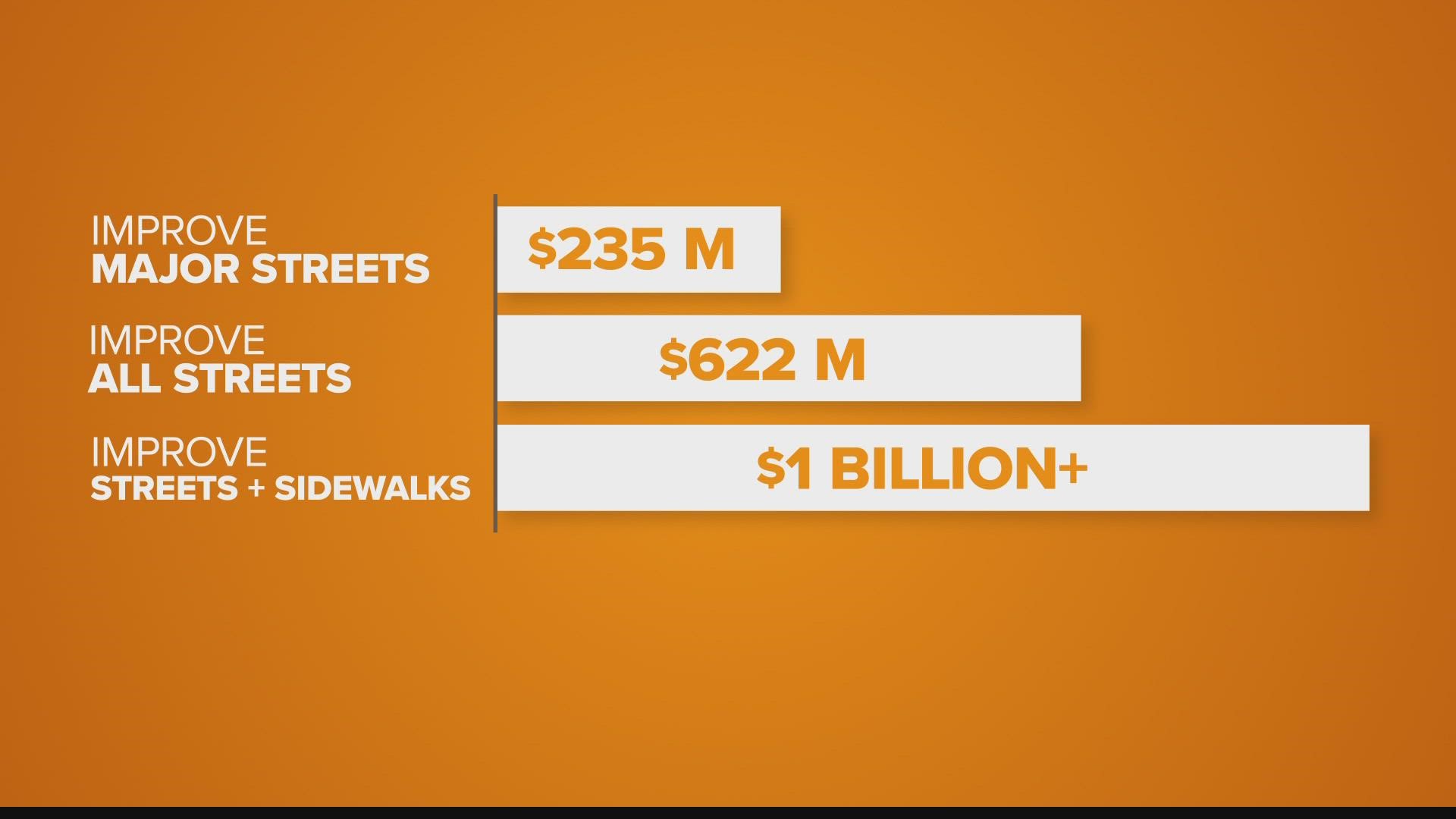INDIANAPOLIS — Indianapolis is the "Crossroads of America." Most city roads, however, aren't considered in good shape. A new report from the city of Indianapolis shows current funding is not making up for normal wear and tear on the roads. It also highlights what the city would need to truly fix the problem. The city is looking into long-term solutions for our pavement problems all while trying to tackle thousands of potholes.
The city has filled about 10,000 potholes already this year. There are still more than 8,000 potholes that need filled. The potholes in neighborhoods or apartment complexes will likely have to wait a while.
"If you reported your request from your residential street in February, it probably hasn't been dealt with yet. We deal with the major thoroughfares first because it's a public safety risk," said Indianapolis Department of Public Works Director Dan Parker.
The report finds that part of the problem is roughly 166,000 vehicles come into Indy from surrounding counties every day. Current funding formulas aren't making up for that wear and tear on the city's roads.
Right now, the city only has about $50 million per year in dedicated roads funding. Money can be moved from other areas, but the base funding is $50 million. The report said the city would need more than $110 million just to keep the roads in the shape they are in now, not improving conditions.
Just 19% of Indy's major roads and just 7% of residential roads are considered to be in "good" condition. Parker said this can be the start of building a long-term solution.
"Most folks know this is a problem that has been sort of generations in the making," Parker said. "And for once, using data that the city has available, we know exactly what the ask needs to be, to the various partners we could go to to ask for help."
Indianapolis would need an additional $235 million to improve major streets. To repair residential streets, it's $622 million. Adding sidewalks would cost more than $1 billion.
Right now, the budget for the entire city this year is about $1.3 billion.
Parker said he knows if Indy is going to tackle this problem, it's going to need help.
"What we would like to do is engage our partners at the state, at the regional level, at the federal level, on ways we can get reliable funding into the Indianapolis transportation budge," Parker said. "Make sure that whatever solution comes forward is reliable in sustaining and not necessarily one that is four or five years, and then it goes away."
Parker said that the best way to get a pothole filled is to report it on the city's pothole tracker, but that major streets will be taken care of first before residential streets.

